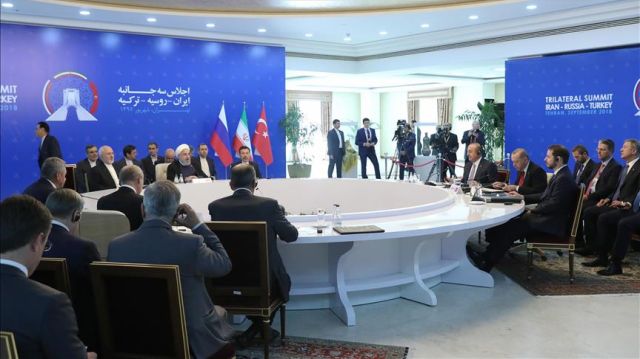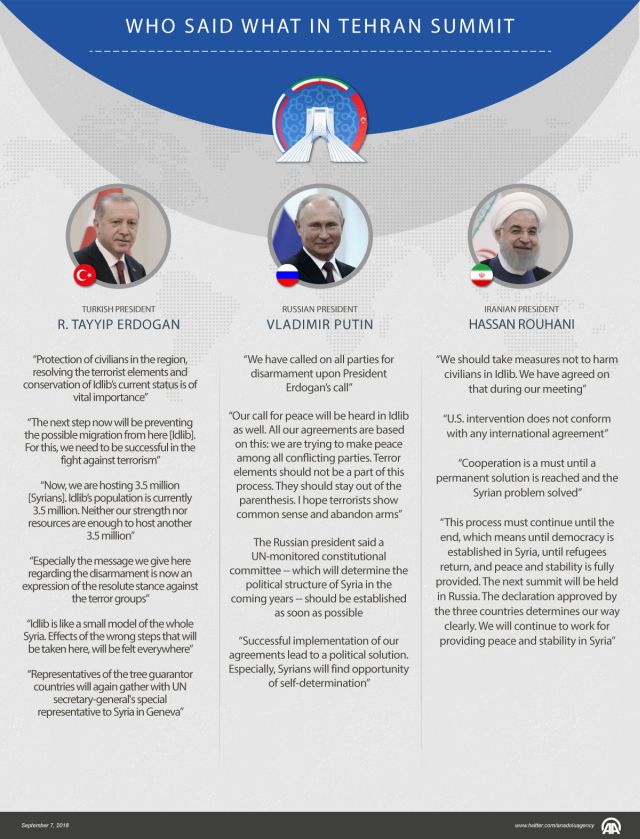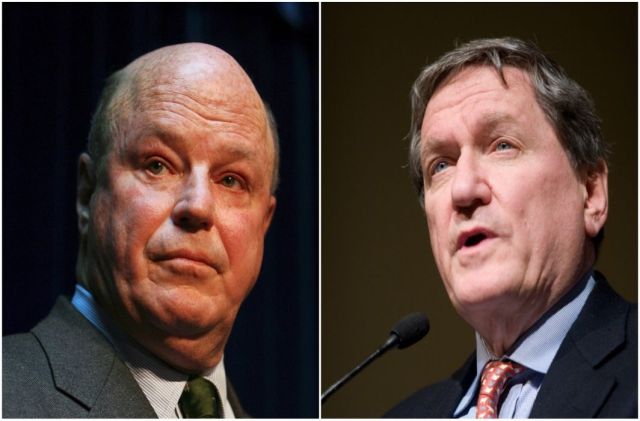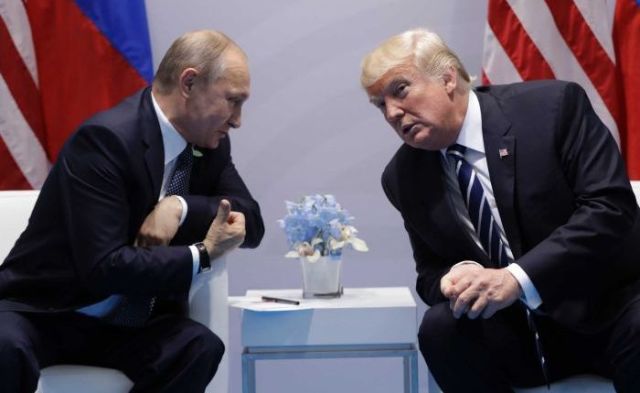
by admin | May 25, 2021 | Business Summit, Events, Muslim World, Social Round-up

President of Turkey Erdogan, President of Iran Rouhani and President of Russia Putin attend trilateral summit on September 7, 2018 in Tehran, Iran.
By Satuk Bugra Kutlugun,
Ankara: Turkey, Iran, and Russia on Friday called for a political solution to the crisis in Syria in a joint statement issued at the end of a trilateral summit in the Iranian capital Tehran.
“There could be no military solution to the Syrian conflict and it can only end through a negotiated political process.
“[They] reaffirmed their determination to continue active cooperation with a view to advancing the political process in consistence with the decisions of the Syrian National Dialogue Congress in Sochi and the UN Security Council Resolution 2254,” the statement said.

The leaders expressed their “satisfaction with the achievements” of the Astana format since January 2017, in particular, the progress made in “reducing violence across the Syrian Arab Republic and contributing to peace, security, and stability in the country.”
Iran, Turkey and Russia “emphasized strong and continued the commitment to the sovereignty, independence, unity and territorial integrity of Syria, as well as to the purposes and principles of the UN Charter and highlighted that they should be respected by all.”
The leaders “rejected all attempts to create new realities on the ground under the pretext of combating terrorism,” while expressing determination to stand against separatist agendas aimed at undermining the sovereignty and territorial integrity of Syria and national security of neighboring countries.”
The joint statement said the leaders highlighted the “need to create conditions for the safe and voluntary return of refugees and internally displaced persons (IDPs) to their original places of residence in Syria.”
Russia, Iran, and Turkey also called for the United Nations and its humanitarian agencies to help Syria by providing additional humanitarian aid.
The joint statement also welcomed the progress in the work of the Working Group on the release of detainees and abductees, and handover of the bodies as well as the identification of the missing persons, as undertaken with the participation of the UN and ICRC experts.
The next tripartite meeting will be held in Russia, upon the invitation of President Putin.
—AA

by admin | May 25, 2021 | Opinions
 By Saeed Naqvi,
By Saeed Naqvi,
Among the dozen or so guests US Ambassador Frank Wisner was escorting to Bhutan for a holiday was Richard Holbrooke, former US Ambassador to the UN. Wisner had invited a few Indian friends to the long hall of Roosevelt House to meet the group. The year was 1996. The ebb and flow of conversation was interrupted when Holbrooke raised his hand like a Japanese tour leader. “Silent,” he whispered audibly. He walked to the far end of the hall to talk on the telephone.
He returned with his mouth full of news. “US-Taliban romance is over,” he announced with authority. Until the previous day, the US was operating on the assumption that the Taliban was the most organised and muscular group in Afghanistan who could be relied upon to stabilise the country. TAPI, or the Turkmenistan, Afghan, Pakistan, India gas pipeline, would then begin to look feasible to the US oil company, UNOCAL — the principal reason for the Afghan conflict.
What the US had not bargained for was the brutality with which the Taliban applied Shariah law on Afghan women. A series of prime time features on Taliban cruelty against women, telecast by the CNN’s Christiane Amanpour, created a sensation in Washington. Without any waste of time, the US decided to distance itself from the Taliban. US officials supportive of the UNOCAL project did not conceal their disappointment. “US gender politics has scuttled a strategic initiative.”
Fast forward to the great Tajik leader, Ahmad Shah Massoud (the lion of Panjshir valley) addressing the European Union in Brussels, in early spring 2001. He alerted the EU leaders, of the information his anti-Taliban Northern Alliance had collected: Al Qaeda, helped by the Taliban, were planning a major attack on the US mainland. For this audacity Massoud was to pay with his life. On September 9, two days before the attack on the Twin towers in New York, Massoud was assassinated at his hideout on the Tajik border. It is interesting that the two Tunisian suicide bombers who had approached Massoud disguised as journalists travelled on passports forged in Brussels, the city where Massoud exposed the plot which turned out to be 9/11. At whose behest was Massoud killed?
Had the financial crisis of 2008 not weakened the West, there may have been different scripts for many regions, including Afghanistan. But given the ground realities, President Barack Obama settled on July 2011 as the date on which US troops would begin to withdraw. In August 2011, precisely a month after the Afghan withdrawal date was announced, the Syrian theatre was opened up. Coordination or chaos?
In a paper for the Observer Research Foundation in September 2010, I had argued that Obama’s exit plans were a pipedream. Do Americans have an endgame planned? Can a superpower, in a theatre of strategic importance, have a linear exit plan when multiple strategic options present themselves? The US has been extremely watchful of a nuclear Pakistan. Is it now willing to walk away leaving the world’s only “Islamic” bomb unmonitored? Let’s not forget, Afghanistan has been the US watch tower on this count.
Moreover, a US being bled by an endless war suits all powers in the region. Demanding American departure but doing everything to keep it tied down in Afghanistan is an elementary game everyone is playing. Would interests in Pakistan wish the logistical supply line from the Karachi harbour to Afghanistan past Baluchistan to dry up? It is a regular source of incalculable earnings.
Would not a possible US departure cause Iran, Pakistan, Uzbekistan, Tajikistan, Russia and China to contemplate the Afghan real estate as a huge vacuum which each power must rush to fill up before the next one does? Here is a recipe for the mother of all civil wars.
Are the Americans likely to walk away simply because they are exasperated? After having spent a trillion dollars, losing thousands of lives, losing face — so soon after their reversal in Syria — are they really contemplating withdrawal? Will the bosses of UNOCAL suck their thumbs now? Will the priceless poppy fields of Helmand, the oil in the North, the unexplored mineral wealth now become a Russian asset?
Of course not. Absence of consistency has been one of the constants in US policy on Afghanistan. To cloak this inconsistency, amplified in the time of Trump, we have strange reports coming out of the White House. Before Steve Bannon, the President’s Chief strategist, was shown the door in August 2017, he had drawn the President’s attention to an outlandish proposition put forward by Eric Prince, the founder of Blackwater, the world’s biggest provider of private armies.
At a strategy session in Camp David, Trump’s Best and Brightest considered the plan: Afghanistan should be administered exactly as the British controlled India — under a viceroy. Is former US ambassador to Kabul, Zalmay Khalilzad, to be that Viceroy? He is an ethnic Afghan and is being tipped as special Envoy which is what the Viceroys were.
Of course, the senior military brass around Trump shot down the first Prince proposal. But with Trump beginning to look vulnerable, all manner of risky adventures are being contemplated. The other day, National Security Adviser John Bolton leaked the alarming news that Syria was about to launch a chemical attack in Idlib. How did he know? From Hezbullah leader Hasan Nasrallah’s speech last Sunday? Nasrallah said, “Data indicates that preparations are underway to stage a new chemical incident in Idlib.” This is the Western “ruse to launch an aggression on Syria”.
Meanwhile, there are statements by Iranian Supreme leader Ayatullah Ali Khamenei, Russian Foreign Ministry and reports by independent journalists like Robert Fisk that militant groups like Jabhat al Nusra, trounced in Syria, are being secretly airlifted to Northern Afghanistan. There are unconfirmed reports of a Chinese retaliation: A battalion being raised in the Wakhan Corridor to block terrorism being transported from Afghanistan. An air strike on the Afghan-Tajik border killed eight militants. According to the Afghan spokesman Khalil Asir, the origin of the aircraft remains unclear. Strange things are happening.
US Presidents have been known to dramatically divert attention when faced with internal crises. Is some catastrophe being manufactured to protect Trump?
(Saeed Naqvi is a commentator on political and diplomatic affairs. The views expressed are personal. He can be reached on saeednaqvi@hotmail.com)
—IANS

by admin | May 25, 2021 | Muslim World
 United Nations : UN Secretary-General Antonio Guterres on Wednesday expressed concern over the “growing risks of a humanitarian catastrophe” in the event of a full-scale military operation in the northern Idlib province of Syria.
United Nations : UN Secretary-General Antonio Guterres on Wednesday expressed concern over the “growing risks of a humanitarian catastrophe” in the event of a full-scale military operation in the northern Idlib province of Syria.
Guterres’ statement on Wednesday followed the briefing a day before by the director of operations for UN humanitarian affairs John Ging to the Security Council. Ging warned such a government offensive in Idlib “has the potential to create a humanitarian emergency at a scale not yet seen” in the seven-year civil war, Xinhua news agency reported.
Speaking through his spokesperson Stephane Dujarric, Guterres reaffirmed that any use of chemical weapons is totally unacceptable, in an apparent response to allegations that emerged recently of possible staging of chemical attacks in the province.
The United States, Britain and France have warned that they will respond “appropriately” to any chemical weapons attack in Idlib, a warning repeated at the Security Council on Tuesday by the three countries.
Russia, for its part, said Syrian rebels are preparing a chemical attack, which Moscow said the West would use to justify a strike against the Syrian forces.
Guterres called on the guarantors of the Astana process, namely Russia, Iran and Turkey, to step up efforts to find a peaceful solution to the situation in Idlib, the last remaining de-escalation zone, one of the four that the process helped to create.
Complementary to the Geneva talks, the Astana process kicked off in early 2017 with a meeting providing for indirect talks between the Syrian government and rebel factions in the neutral Kazakh capital. In tandem with the Geneva talks, the process aims to achieve a peaceful and stable solution to the conflict in Syria.
Concluding his statement, Guterres urged all parties to take all necessary measures to safeguard civilian lives, allow freedom of movement, and protect civilian infrastructure, including medical and educational facilities, in accordance with international humanitarian law and human rights law.
Reports have said the Syrian government is gearing up for an offensive in Idlib province, which is home to nearly 3 million people and has a large al-Qaida presence in addition to Syrian rebel groups.
—IANS

by admin | May 25, 2021 | World
 Washington : US President Donald Trump said on Saturday that the US has ended the development fund for Syria, urging “rich countries” to pay instead.
Washington : US President Donald Trump said on Saturday that the US has ended the development fund for Syria, urging “rich countries” to pay instead.
In a tweet, Trump said “the US has ended the ridiculous $230 million yearly development payment to Syria.”
“Saudi Arabia and other rich countries in the Middle East will start making payments instead of the US,” he said.
“I want to develop the US, our military and countries that help us!”
Earlier on Friday, the US State Department said that the fund, which was targeted to support the stabilization initiative in Syria, has been ordered to be redirected, ramping up speculation that it would be withdrawn from the country.
US former Secretary of State Rex Tillerson announced on February 13 that the US pledges $200 million in support of the anti-IS coalition efforts and recovery commitment in Syria, Xinhua reported.
However, Trump reportedly ordered in March a hold on the funds, demanding more information on how the money is being used, and urging other countries to step up to the plate and pay more.
He also said that his country will withdraw its troops in Syria “very soon,” triggering speculation of the US possible retreat from Syria.
Syria has always denounced the US military action in the country as uninvited aggression.
—IANS

by admin | May 25, 2021 | World
 Moscow : Russian President Vladimir Putin and his US counterpart Donald Trump are set to discuss a number of “very complex” issues, including the situation in Syria, the Kremlin said on Friday.
Moscow : Russian President Vladimir Putin and his US counterpart Donald Trump are set to discuss a number of “very complex” issues, including the situation in Syria, the Kremlin said on Friday.
“A rather detailed discussion on Syria is anticipated,” Xinhua quoted Kremlin spokesperson Dmitry Peskov as saying.
He said “serious preparations” are being made for the summit slated for July 16 in Helsinki.
Peskov said Moscow is ready to follow the path of normalizing Russia-U.S. relations to the extent Washington is ready to do.
On Thursday, the CNN quoted unnamed sources as saying that Trump believes he can strike a deal with Putin on a so-called exclusion zone in southwest Syria that will allow the United States to “get out ASAP”.
Peskov said Moscow is unaware of Trump’s plans.
—IANS







